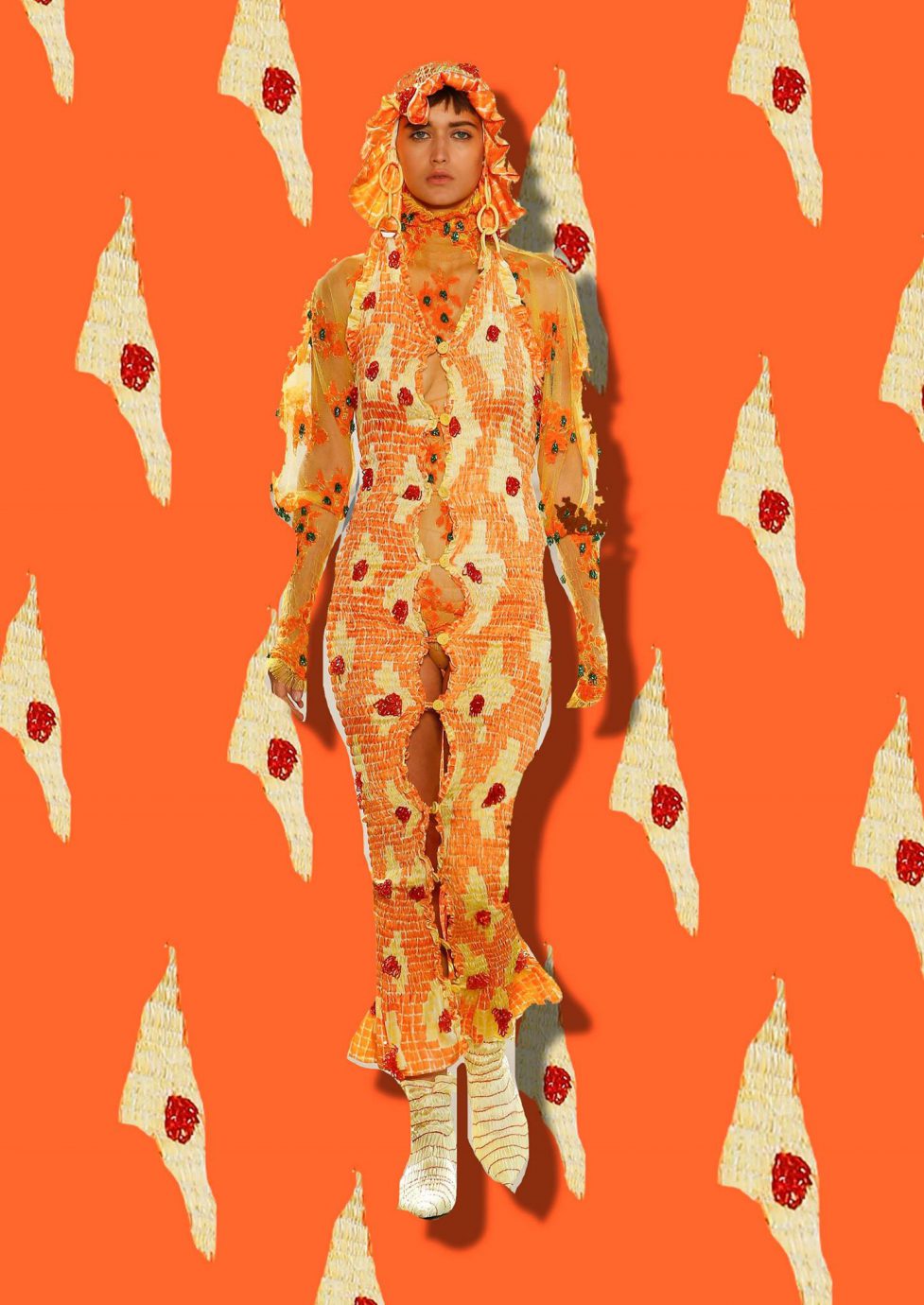Accompanied by a written thesis to contextualise her designs, Misha Japanwala’s work consists of casts molded after her own torso as well as other Pakistani women’s body parts such as hands. Attaching straps or hardware, the literal embodiments turn into tops or jewellery in a grey, stone-like hue. Each piece tells a uniquely personal story, amplifying the voices of women who are not given the chance to speak up about their experiences living in Pakistan’s society.
“Being Pakistani is the biggest part of my identity because it’s all I’ve ever known,” she says. Japanwala removed herself from her home country and moved to New York City where she began her Bachelor in Fine Arts. Quickly, she became aware of the stark contrasts between the two cultures and, subsequently, it made her question her identity. During her initial years at Parsons, she recalls struggling to find her aesthetic. “No matter what I’d do, something about Pakistan would inevitably come into it.”

























